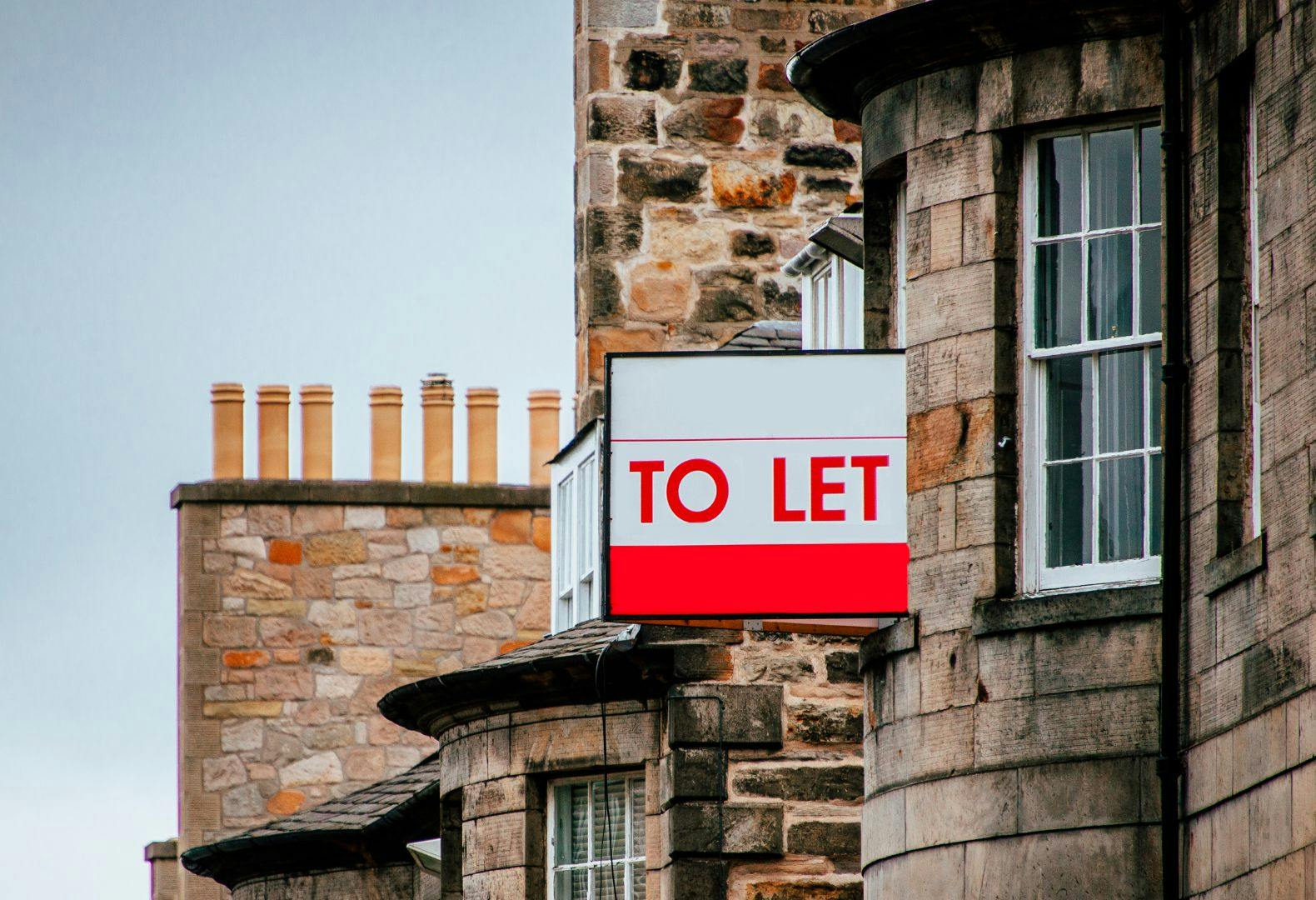Buy to let vs stocks: Which one should I invest in?
We’re obsessed with property in the UK. And with property prices rising faster than the average salary, it’s no wonder so many people turn to investing in buy to let properties as a way to increase their income and build wealth over time. But is investing in buy to lets better than stocks? Which one should you invest in?
What are the advantages of buy to let?
There are three key advantages to investing in a buy to let property; you'll get a regular income, you could see capital growth on the property if house prices rise over time, and you'll have more control over the management of your investment in comparison to alternatives like stocks and shares.
1. Regular income
Something that sets buy to let apart from other types of investment is that it can provide you with a regular income. At the minimum, you’ll want your tenants’ rent to cover your expenses such as mortgage payments, letting agents fees, and repair/maintenance costs. But to make buy to let really worthwhile, you’ll need to make a regular income that you can put towards your own expenses, living costs, and personal goals too.
Struggling to cover your buy to let mortgage with rental income alone? There are ways to make your buy to let more affordable. Learn more here.
2. Capital Growth
Property values can rise and fall from one year to the next, but over the long term they tend to increase. On average, UK property prices are 65 times higher today than they were in 1970, so by holding onto your property for a long time, you should hopefully be able to sell it for a generous profit.
Read more: Are house prices still rising?
3. Control
When you invest in buy to let, you’ll have a lot of control over how your investment is managed. You can decide which property to buy, whether to make any changes to it, who to rent it out to, and how it is managed once a tenant moves in.
You might like: Where should I buy a house?
What are the disadvantages of buy to let?
There are four key disadvantages of buying a buy to let property; there is often high upfront costs, as well as the ongoing costs of covering maintenance and repairs, and other costs like higher tax payments. You'll also need to pass mortgage affordability checks to be approved for a buy to let mortgage, which can be harder for some applicants.
1. High upfront cost
You’ll usually need a deposit of at least 25% to buy a buy to let property. So if you’d like to invest in a house worth £400,000, for example, you’ll need a deposit of around £100,000.
The upfront cost of buy to let can be an obstacle for many potential landlords. If you’re wondering how to get the money together, we may be able to help.
2. Mortgage affordability checks
Finding a deposit for your investment property is only half the battle. To get a mortgage, you’ll also have to pass lenders’ affordability checks.
Mortgage affordability checks can vary from one lender to the next, but most will want to see that you can afford the mortgage payments on your investment property on top of your existing expenses.
Most buy to let mortgage lenders will take into account how much rent you’d be able to charge your tenants. They’ll do this by assessing average rents in your area and the demand for that type of property.
3. Repairs and maintenance
There’s no shortage of property investors talking about ‘passive income’ on YouTube, TikTok and Instagram. Although they might promote the benefits of ‘making money while you sleep’, being a property investor is rarely as easy as it sounds.
As a landlord, you’ll be responsible for maintaining and repairing your investment property. This can be costly and time-consuming. And the more properties you have, the larger your workload will be. It can be hard to switch off, particularly if you manage everything yourself.
You may be able to reduce your workload by outsourcing some of the day-to-day responsibilities of being a landlord. Some people outsource it all, but this can eat into your profits and make your investment less worthwhile.
4. The cost of being a landlord
Being a landlord often comes with ‘hidden’ costs that new investors often overlook. You’ll usually have to budget for the following:
- Mortgage costs
- Legal fees
- Letting agent fees
- Admin costs
- Repair and maintenance fees
- Tax
A letting agent can take full control of managing your property, if you want them to. Their responsibilities can involve advertising the property, arranging viewings, vetting tenants, protecting deposits, responding to tenants questions, and hiring tradespeople such as plumbers and electricians. They’ll also help you abide by government legislation and stay on the right side of the law. This can be particularly helpful if you’re new to buy to let investing and you’re still figuring out how everything works.
However, these services come at a cost. Letting agent fees can range from 10%-20% of the rent, making your investment less profitable than if you were to manage it yourself. You’ll need to weigh up the benefits of being less involved and having more time for yourself versus the impact on your profits.
5. Property market risks
Investing in property can seem like a safe bet, especially when you look at how house prices have increased over time. But buy to let isn’t risk-free and there are no guarantees. The market can be unpredictable and your property’s value can decrease. A significant fall in your property’s value could make it hard to remortgage. And if interest rates rise, your payments could become less affordable.
What are the advantages of stocks and shares?
There are three key advantages of stocks and shares over other investments like buy to let properties. Stocks are highly liquid, which means you can buy and sell them easily. There is also a low initial cost, so stocks can be an easy investment option for new investors. It's also relatively easy to build a diverse stock portfolio, which can help spread the risk of your investments.
1. Liquidity
Stocks are highly liquid, meaning you can buy and sell them easily. If you want fast access to your money, you can sell your stocks and see the money in your bank account within a matter of days. However, since the value of your stocks can go down as well as up, they might be worth less than you paid for them. If you need your money urgently, you may need to sell them at a loss. Whereas if you can hold tight for a few months (though sometimes it may be years), your stocks will usually recover and you won’t lose any money.
2. Low Initial Cost
Investing has a lower barrier to entry than you might think. In fact, some investing platforms will let you get started with as little as £1. If you’d like to invest but you keep waiting until ‘the right time’, this low initial cost could provide you with an incentive to just get started.
3. Diversification
It’s easier and cheaper to build a diverse stock portfolio than it is to build a diverse property portfolio. By building a diverse portfolio covering multiple properties, industries and stock markets around the globe, you can reduce risk.
What are the disadvantages of stocks and shares?
There are three key disadvantages of investing in stocks and shares; firstly, the stock market can be volatile, so the value of your investments can go up and down. You also have no control over the companies you invest in, meaning the decisions of others can impact how your investments perform. There is also no guarantee of making a profit by investing in stocks and shares.
1. Volatility
As we touched on earlier, the stock market can be extremely volatile. This means the value of your investments can fluctuate. Your portfolio might be up 10% one month and down 10% the next. This can make the stock market risky, particularly if you’re only investing for the short term or you don’t have much money in savings. If there’s a chance you might need the money in the next 5 years, it’s a good idea to keep it in cash.
2. No Control
The stock market gives ordinary people an opportunity to invest in large corporations such as Apple, Microsoft, Facebook and Tesla. But this doesn’t mean you’ll have control over each company’s decisions and management.
You might invest in one of your favourite companies only for a new CEO to shake things up in a way you disagree with. This is one of many reasons why it’s a good idea to avoid investing in individual companies as a new investor. Investing in index funds might not sound as exciting, but it can be much safer.
3. No Guaranteed Returns
Investing in stocks can be one of the best ways to build wealth over time, but this doesn’t mean a return is guaranteed. If the value of your stocks fall or there’s a stock market crash, you may lose money. However, you can often ride out these fluctuations with patience.
Want to start your buy to let journey?
See what you could afford for a mortgage, and what buying schemes you're eligible for by creating a free Tembo plan
How to decide between buy to let vs stocks
If you’re struggling to decide between buy to let vs stocks, here are a few questions to ask yourself:
🏠 Can you afford to buy a buy to let property?
If you have a lot of money in savings, you’ve received an inheritance, or you’ve sold a business or other type of investment, you may be in a good position to buy a buy to let property.
If you’re a homeowner, you may be able to use the value from your home to put down a deposit on an investment property. There are a few ways to do this, but one of the most popular involves remortgaging.
Learn more: What is remortgaging and how does it work?
📈 Do you want to invest little and often?
If you want to invest little and often, the stock market might be best for you. If you were to invest £300 a month for 10 years and get a 7% average annual return, you’d end up with £49,739 — even though you’d only invested £36,000 of your own money. With buy to let, however, you’d need a much larger upfront investment rather than regular contributions.
🏠 Do you want to make a regular income?
It’s possible to make a regular income from the stock market by prioritising stocks that pay dividends — these are financial rewards that companies pay to their shareholders as an incentive to keep investing with them. However, it can take a long time to build a dividend portfolio big enough to generate an income.
So unless you have a large sum of money to invest in the stock market from the get-go, buy to let can be a better way to make a regular income.
📈 Do you want passive income?
Although buy to let can offer a regular income, it’s not necessarily a ‘passive income’. Unless you can afford to outsource all the repairs, maintenance and property management, you’ll need to be heavily involved in the running of your buy to let empire.
A dividend-paying stock portfolio, however, can be a passive income. You aren’t responsible for the companies you invest in. All you need to do is deposit your money in your investment account and let its value grow over time.
Is buy to let better than stocks?
For some people, buy to lets can be a better investment than stocks. If you have a deposit set aside or you’re a homeowner with a significant amount of equity in your property, buying an investment property could be a sensible decision. You could even become an 'accidental landlord' by turning your current home into a letted property and buy a new home to live in through a Let to Buy mortgage. You’ll be able to make a regular income and benefit from rising property prices over time.
However, being a landlord can be one of those jobs that’s hard to switch off from. It’s nothing like a 9-5 and you’ll need to accept that tenants could call you in the early hours of the morning to complain about a broken boiler.
If being a landlord sounds like more trouble than it’s worth, the stock market can allow you to build wealth slowly. It can take a long time to build a portfolio that generates a reliable income, but by automating your investments and sticking with it for the long term, you can make a lot of money without having to play an active role in the companies you invest in.
See if you could get a buy to let mortgage today
If you’d like to get started with buy to let properties, we may be able help you get a mortgage. Talk to Tembo today to weigh up your options, find out how much you can afford, and even increase your borrowing potential.



